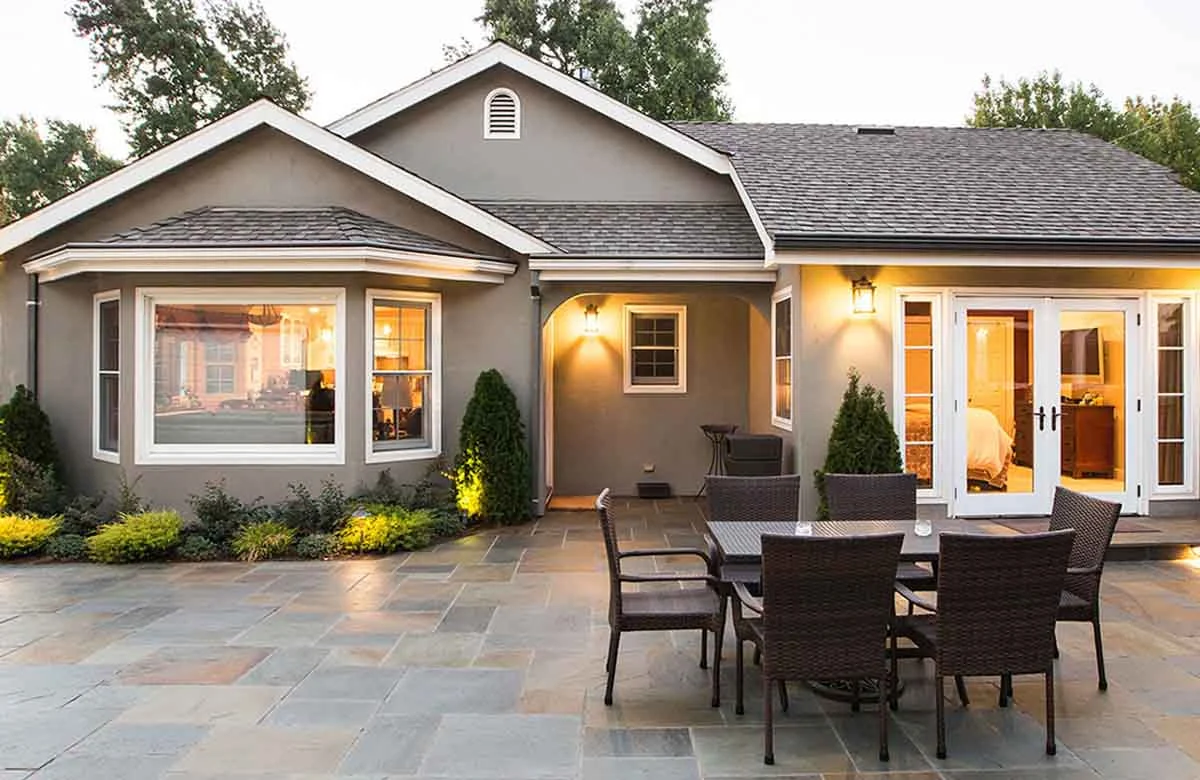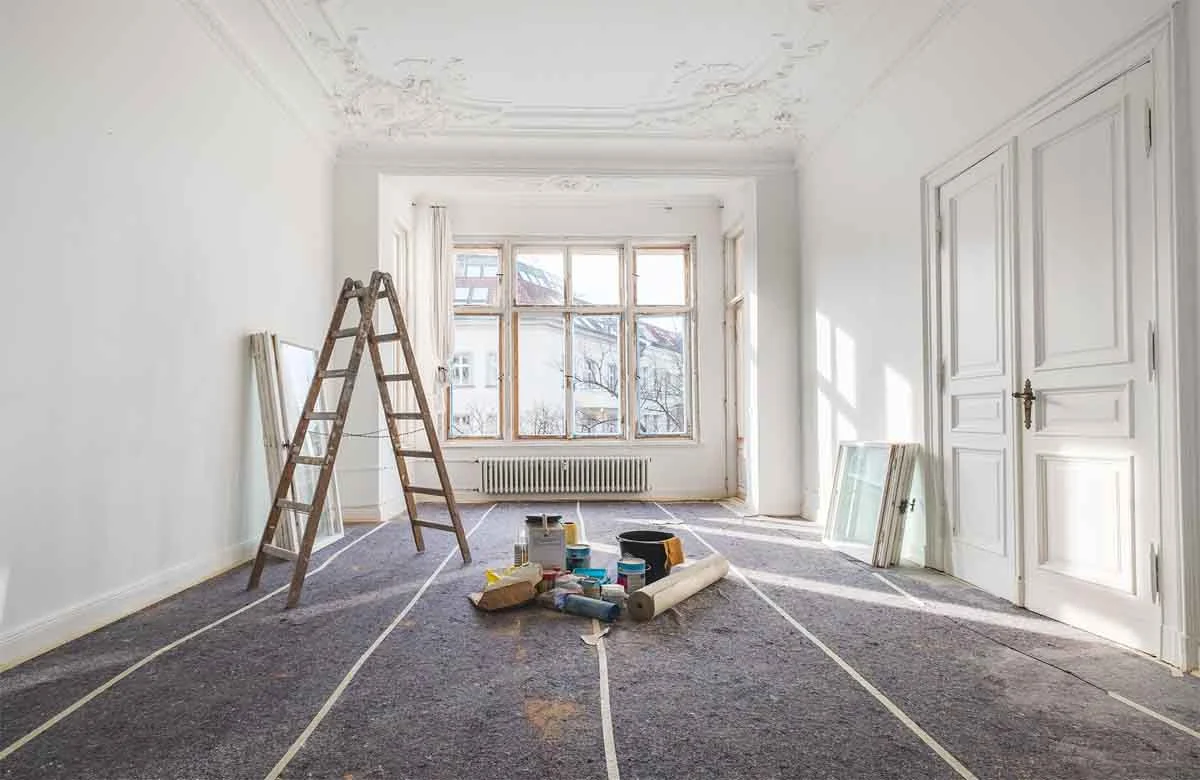
The Benefits of Energy-Efficient Home Remodeling
Energy-efficient home remodeling is an increasingly popular way for homeowners to reduce energy consumption, lower utility bills, and increase property value. Whether you’re upgrading insulation, installing energy-efficient windows, or incorporating smart appliances, energy-efficient home remodeling can significantly enhance the comfort and sustainability of your living space.
In this guide, we’ll explore the benefits of energy-efficient home upgrades, their impact on long-term cost savings, and how they can contribute to a greener planet.
1. Lower Utility Bills with Energy-Efficient Upgrades
The Financial Benefits of Energy Efficiency
One of the most compelling reasons for homeowners to invest in energy-efficient home remodeling is the reduction in utility costs. Energy-efficient upgrades reduce heat loss, improve temperature regulation, and minimize electricity consumption.
Key Energy-Saving Upgrades:
- Improved Insulation: Reduces heating and cooling expenses by up to 15%.
- Energy-Efficient Windows: Helps retain indoor temperatures, cutting energy costs by 25-30%.
- Smart Thermostats: Optimizes heating and cooling schedules, saving homeowners an average of $180 per year.
- LED Lighting: Uses up to 75% less energy compared to traditional incandescent bulbs.
Real-TimeCase Study: Lowering Energy Bills
Case Study: Mark and Lisa from Chicago decided to replace their old windows with Energy Star-certified windows and upgrade their attic insulation. Within the first year, they noticed a 28% reduction in their monthly energy bills, translating into annual savings of nearly $900.
2. Increased Home Value and Market Appeal
Higher Resale Value
Energy-efficient homes are in high demand, with buyers willing to pay more for properties featuring sustainable upgrades. According to a study by the National Association of Realtors, homes with energy-efficient improvements sell for up to 6% more than those without.
Key Features That Boost Home Value
- Solar Panels: Increases resale value by an average of $15,000.
- High-Efficiency HVAC Systems: Attracts buyers looking for reduced long-term energy costs.
- Tankless Water Heaters: Offers on-demand hot water while reducing energy waste.
- ENERGY STAR® Appliances: Lower operational costs, appealing to eco-conscious buyers.
Real-TimeCase Study: Home Resale Success
Case Study: Emily, a homeowner in Denver, invested in solar panels, a smart HVAC system, and energy-efficient lighting before listing her home. She sold her property for 10% above the market value due to high demand for energy-efficient homes in her area.
3. Improved Indoor Comfort and Air Quality
Temperature Regulation
Energy-efficient remodeling ensures consistent indoor temperatures, eliminating drafts, cold spots, and excessive heat.
Top Upgrades for Improved Comfort:
- Insulated Walls and Attics: Maintains stable indoor temperatures.
- Triple-Pane Windows: Reduces outside noise and enhances thermal efficiency.
- Zoned HVAC Systems: Allows homeowners to control temperatures in different areas of the house.
Better Air Quality
Indoor air quality improves with energy-efficient materials and proper ventilation.
- Air Purification Systems: Reduces airborne pollutants.
- Eco-Friendly Paints: Low-VOC paints improve air quality by reducing toxic emissions.
- Smart Ventilation Systems: Circulates fresh air while maintaining energy efficiency.
Real-TimeCase Study: Healthier Living Environment
Case Study: The Johnson family from Seattle installed an energy-efficient HVAC system with a built-in air purifier. Within months, they experienced fewer allergy symptoms and improved indoor air quality, enhancing their overall comfort at home.
4. Reduced Carbon Footprint and Environmental Impact
Sustainable Home Remodeling for a Greener Planet
Energy-efficient remodeling reduces the environmental impact by lowering energy consumption and minimizing waste.
Key Eco-Friendly Upgrades:
- Solar Energy Systems: Decreases reliance on fossil fuels.
- Reclaimed and Recycled Materials: Reduces construction waste.
- Rainwater Harvesting Systems: Conserves water for home use.
- Green Roofs and Landscaping: Enhances insulation and reduces heat absorption.
Environmental Impact of Energy Efficiency
According to the U.S. Department of Energy, upgrading to energy-efficient appliances and insulation can reduce household carbon emissions by 20-30%.
Real-TimeCase Study: Eco-Friendly Home Transformation
Case Study: Tom and Sarah, an environmentally conscious couple from California, integrated solar panels, energy-efficient windows, and smart lighting systems in their home. Over five years, their energy consumption decreased by 40%, and they significantly reduced their carbon footprint.
5. Financial Incentives and Tax Benefits
Government Rebates and Incentives
Many governments offer financial incentives to encourage homeowners to adopt energy-efficient practices.
Available Incentives:
- Federal Solar Investment Tax Credit (ITC): Allows homeowners to deduct 26% of solar installation costs from federal taxes.
- State and Local Utility Rebates: Various states provide rebates for energy-efficient home improvements.
- ENERGY STAR® Tax Credits: Offers savings on certified appliances and HVAC systems.
- Low-Interest Green Home Loans: Financing options for sustainable remodeling projects.
Real-TimeCase Study: Cost Savings Through Incentives
Case Study: David from Texas installed solar panels and qualified for a $5,000 federal tax credit. Combined with local rebates, he reduced his upfront costs by 40%, making his energy-efficient upgrade much more affordable.
6. Smart Technology Integration for Enhanced Efficiency
The Rise of Smart Homes
Smart technology improves home efficiency by automating energy use and optimizing resource consumption.
Must-Have Smart Home Features:
- Smart Thermostats: Adjusts heating and cooling based on usage patterns.
- Smart Lighting: Automatically dims or turns off when not needed.
- Home Energy Monitoring Systems: Tracks energy consumption in real time.
- Automated Window Shades: Reduces heat gain and minimizes air conditioning costs.
Real-TimeCase Study: High-Tech Energy Savings
Case Study: Lisa, a tech-savvy homeowner, installed a smart thermostat and energy monitoring system. Within the first year, she saved $600 on her energy bills by optimizing heating and cooling schedules.
Final Wording
Investing in energy-efficient home remodeling is a smart decision that provides financial, environmental, and comfort-related benefits. From lower utility bills and increased property value to improved air quality and reduced carbon footprint, these upgrades offer both immediate and long-term advantages.
If you’re considering an energy-efficient remodel, Nu Horizon Remodeling is here to help. Our team specializes in sustainable home upgrades tailored to your needs.
📞 Contact us today at (737) 279-2646 or visit Nu Horizon Remodeling to schedule a free consultation!


